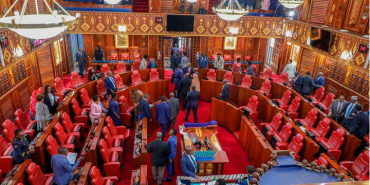Why Both Parents Must Agree on a Child’s Name, Kenyan Court Rules

The High Court has affirmed the equal rights and responsibilities of both parents in naming their children.
The decision comes in the wake of a dispute where a father, identified as CKM, contested his wife's unilateral decision to name their youngest child without his consent or input. Justice Hillary Chemitei presided over the case, which centered on the birth of CKM and SW's fifth child in April of last year. CKM argued that SW registered the child's name without consulting him, thereby disregarding his paternal influence and family heritage.
He sought court intervention to amend the birth records and ensure a mutually agreed-upon name for the child. The core of the disagreement stemmed from differing cultural and personal preferences. SW favored a name that combined Japanese and Kikuyu elements, while CKM advocated for a French name inspired by a revered saint, alongside a third name honoring his father, a tradition observed with their other children.
CKM also emphasized his financial contribution to the child's birth as further justification for his involvement in the naming process. Justice Chemitei's ruling emphatically reinforced the principle of joint parental duty in naming a child. The court directed CKM and SW to reach a mutual agreement on the child's name within 30 days.
In the event of a failure to agree, the court stipulated that the father's preferred name would be formally registered. The Registrar of Births and Deaths was further instructed to act in accordance with the court's directive. Contextualizing the ruling, Justice Chemitei noted that while African traditions typically acknowledge parental responsibility in naming children, the evolving nature of these customs does not negate the foundational principle of joint parental authority.
Psychologists have long underscored the psychological significance of a child's name, linking it to their sense of identity and potentially impacting their emotional well-being. Exclusion from crucial decisions, such as naming, can lead to emotional distress and identity-related issues later in life.














Add new comment